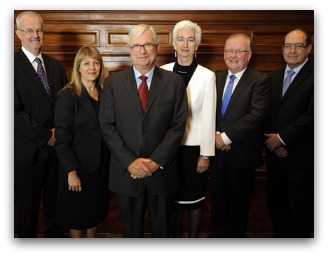The Healing God of the Royal Commission
Eureka Street
The Royal Commission into Institutional Responses to Child Sexual Abuse has begun, with its first sitting held in Melbourne last week. Expectations are high; relief runs deep. Both commissioners and victims will be treading a harrowing path together in the coming months and years. It is bound to be a national catharsis. The six commissioners expect to receive more than 5000 submissions. Orders have already been served on the Catholic Church, its insurer, the Salvation Army and the NSW Director of Public Prosecutions. The Commission foresees that it will miss the 2015 deadline for a full report, due to the monumental scope. Though it will not be prosecuting criminal cases, it has established links with state and territory police. There is also a focus on policy corrections for institutions which are found to have failed in their duty of care. The prosecutorial and legal outcomes from the commission will be significant. But other wounds bear considering. The Catholic Church is placed uniquely among institutions under scrutiny. The trust that laypeople hold in priests and other vowed religious is not the same trust held in teachers, doctors and coaches. It is sourced from the stories that feed their faith. The shepherd, in particular, is an abiding image of God. 'The Lord is my shepherd,' goes one of the more famous biblical passages shared by Jews and Christians. 'Though I walk through the valley of the shadow of death, I fear no evil, for you are with me.' The words provide a mirror for Jesus, who casts himself as the good shepherd, who would leave 99 of his flock to look for the one that is lost, who would lay down his life for them all. When his disciple Peter asserts his love, Jesus tells him to feed the lambs and sheep, to look after them. This is the Peter to whom Catholic priests, religious brothers and sisters, bishops and popes trace back their authority and ministry. This is the context in which the depth of betrayal must be understood, as the Royal Commission progresses. These aren't merely images and stories; they are the bases of a Christian understanding of a loving God. It flavours public expectations of his earthly envoys. Yet no one seemed to be at the gate when the wolves came. There is no overstating the distress that this has caused the faithful. The hurt and anger can be overwhelming. It is impossible to reconcile with the scale and pattern of cruelty. The undeserved stain on the many religious whom I know to be uncommonly decent is also enraging. The Royal Commission is thus received as a purgative for a particular toxicity that has coursed through our institutions for too long. Rather than an exercise in self-flagellation, it is an opportunity to walk in solidarity with those who have been hurt. It is cause for hope. To its credit, the Australian Catholic Church has released victims from confidentiality agreements, so they may add their story to those that will be gathered by the commissioners. The fact that such confidentiality was ever a feature of church process reflects poorly on officials. It is a business of shadows, which look set to be dispelled. As head commissioner Justice Peter McLellan puts it, part of their task involves bearing witness. It is a completely apt approach for any royal commission, but it holds special resonance in the Christian tradition. To bear witness is to listen closely and watch, to allow room for unravelling. It is to value a person's story and accept that suffering is its own truth. It is to expose yourself. It is to tread with care on holy ground. This means keeping from inserting yourself into the scene, respecting the space that has been given over to victims. It may be difficult for some in our community to restrain themselves in the coming months. But they must. We must also take care of our own safety, as there are limits to the number of personal accounts we can hear or read in one day. It will be an arduous process, with public hearings unlikely to commence before October. But Catholics must stand fast; so must the wider community. That is also what witnessing means: to abide. We do this so we may better tell the stories. For the stories to come aren't just the stories of victims; they are the story of the Catholic Church and the community within which it sits. Their healing will be our healing.
|
.
Any original material on these pages is copyright © BishopAccountability.org 2004. Reproduce freely with attribution.
